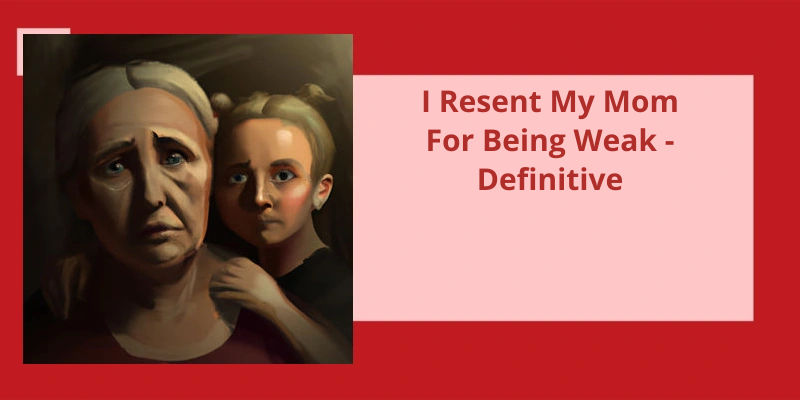One of the most devastating losses that a person can experience is the death of a child, and it’s a tragedy that can affect anyone regardless of their personality type. However, when it comes to individuals with narcissistic tendencies, there may be unique patterns in how they process and react to such a heart-wrenching event. The core characteristic of narcissism is a preoccupation with self, and this can manifest in a variety of ways when faced with the loss of a child. In general, it’s likely that a narcissist who loses a child will focus primarily on their own feelings, rather than the loss of the child themselves. They may seek attention and validation from others, and may use the tragedy as an opportunity to play the victim or elicit sympathy.
What Is the Role of the Lost Child in a Narcissistic Family?
The Lost Child is a term used to describe the invisible and withdrawn child in a narcissistic family. In an NPD family, the narcissist is the center of attention, and everyone revolves around them. All the energy and focus is on the narcissist, leaving little room for others in the family to have their own needs or desires. The Lost Child is the person in the family who escapes the constant drama and conflict by disappearing into the background.
While the Lost Child may feel invisible and forgotten, they still play an important role in the family dynamic. Their absence creates a vacuum in the family that the narcissist will often fill with their own needs and desires. The Lost Childs detachment and lack of involvement can also help to diffuse some of the tension in the family as they avoid confrontation and conflict. However, this detachment can come at a great cost to the Lost Child as they miss out on emotional support and opportunities for growth and development.
Being the Lost Child can have long-lasting effects on a persons mental health and relationships, making it important to seek support and healing outside of the family system.
-How to Heal and Address the Traumas of Growing Up as the Lost Child
- Recognize and acknowledge the trauma you experienced as a Lost Child
- Find a therapist or counselor who specializes in childhood trauma
- Practice self-care by engaging in activities that bring you joy and relaxation
- Create a support network of friends and family who validate and acknowledge your experiences
- Journal your thoughts and feelings to process and release pent-up emotions
- Develop coping mechanisms such as meditation, breathing exercises, or physical activity
- Explore your spirituality or faith to find comfort and meaning
- Join a support group with others who’ve experienced similar childhood trauma
- Forgive yourself and others involved in your childhood trauma, if and when you’re ready
- Set boundaries with people and situations that trigger or re-traumatize you
- Seek professional help if you’re struggling with addiction or harmful behaviors stemming from your childhood trauma
It’s important to understand that while childhood trauma may contribute to the development of narcissism, it doesn’t excuse harmful behavior or justify the mistreatment of others. It’s crucial to address and heal from childhood trauma in order to prevent it from shaping one’s identity and relationships in a negative way.
What Childhood Trauma Does a Narcissist Have?
Often, narcissists have a history of being parented by someone who was excessively critical or demanding. They may have grown up feeling as though they were never good enough, or that they’d to constantly strive for perfection just to earn their parents approval. This constant pressure can lead to a distorted sense of self, where the narcissist feels that they’re superior to others in every way.
Narcissists may also have experienced abuse or neglect during childhood. This could have been physical or emotional abuse, or simple neglect, where their needs weren’t met by their caregivers. As a result of this trauma, the child may have developed a deep sense of anger, resentment, or mistrust towards others. This can lead to a need for control and domination in relationships, as the narcissist seeks to protect themselves from further harm.
In addition to their childhood experiences, narcissists may also have a genetic predisposition towards this personality disorder. Studies have shown that NPD tends to run in families, indicating that there may be a hereditary component to it’s development. However, this doesn’t mean that someone is destined to become a narcissist just because they’ve a family history of it. Environmental factors also play a significant role in shaping the development of this personality disorder.
It’s important to note that not everyone who experiences childhood trauma will go on to develop NPD. Many people are able to overcome these experiences and form healthy relationships with others. However, for some individuals, the trauma they experienced during childhood can become a defining feature of their personality. This is particularly true for individuals who were repeatedly exposed to trauma over an extended period of time.
In order to heal from narcissism and rebuild meaningful relationships with others, it’s important for individuals to seek professional help. Therapy can help narcissists confront the underlying emotional wounds that led to their personality disorder, and learn healthier ways of relating to others. Treatment may also involve medications or other interventions to manage symptoms such as depression or anxiety. Ultimately, recovery from NPD is possible, but it requires a commitment to self-reflection, honesty, and hard work.
How to Recognize and Address Narcissistic Behaviors in Oneself or in Others.
- Frequent need for attention and admiration
- Lack of empathy for others
- Belief in one’s own superiority
- An insatiable desire for power and control
- Manipulative behavior in order to get what they want
- Unwillingness to compromise or admit fault
- Difficulty accepting criticism or feedback
- Tendency to exploit others for personal gain
- Arrogant demeanor and sense of entitlement
- Intense jealousy or envy towards others
- Difficulty maintaining healthy relationships
- Intense focus on personal appearance and image
In families with a narcissistic parent, the roles that children play can be complex and damaging. While one child is elevated to the position of “golden child,” others may be cast as the “scapegoat” or “lost/invisible child.” The golden child is usually the parent’s favorite, and is often used to validate the parent’s self-worth and feed their ego. But what happens to the other children, and what impact do these roles have on their development and well-being? Let’s take a closer look at each of the three roles and their effects on children in narcissistic families.
What Are the Roles of Children in a Narcissistic Family?
The golden child is expected to be perfect, excel in all areas of life, and always make the parent look good. In return, the parent showers the golden child with attention, praise, and material rewards. This creates a bond between the parent and child, where the child becomes dependent on the parents approval, and the parent becomes dependent on the childs success.
On the other hand, the scapegoat is the child who’s blamed for everything that goes wrong in the family. This child is seen as the black sheep, the troublemaker, and the one who can do nothing right. The scapegoat is constantly criticized, shamed, and isolated from the rest of the family. This often leads to feelings of low self-esteem, anxiety, and depression. The scapegoat is seen as the source of the familys problems, and if he were to leave or change, everything would be better.
The lost/invisible child is the child who’s often ignored, neglected, or forgotten in the family. This child is neither the golden child nor the scapegoat. He’s the one who fades into the background, tries to avoid conflict, and suffers silently. This child often feels as if he’s not seen or heard. He may feel invisible and powerless. This creates feelings of loneliness, isolation, and a sense of not belonging.
In a narcissistic family, the roles of the children are determined by the parents needs and desires, not the needs and desires of the child. The parent uses the children to fulfill his own emotional needs, rather than nurturing them to become healthy, independent adults. This creates a dysfunctional family dynamic, where the children are pitted against each other, and the parent is in control.
The long-term effects of growing up in a narcissistic family can be devastating. The golden child may struggle with feelings of inadequacy and low self-worth, as he learns to always seek validation from others. The scapegoat may suffer from anxiety, anger, and depression, as he learns to believe that he’s the cause of all problems. The lost/invisible child may struggle with identity issues, as he learns to feel invisible and unimportant.
This can lead to a dysfunctional family dynamic, with long-term effects on the childrens emotional health and well-being. It’s important for those who’ve grown up in this type of family to seek support and healing, and to break the cycle of narcissism in their own lives.
How Can Parents Break the Cycle of Narcissism in Their Own Lives and Approach Parenting in a Healthier Way?
To raise children in a healthy way, parents with a history of narcissism must first acknowledge and understand their own behavior. By seeking therapy or self-help resources, they can work on changing their own patterns and behaviors. Incorporating techniques such as active listening, empathy, and positive reinforcement can then help them approach parenting in a healthier way and break the cycle of narcissism in their family.
It’s a heartbreaking truth that narcissists, despite their claims to the contrary, don’t possess the capacity for genuine love for their children. While they may believe they feel love for their offspring, their affection is insincere and conditional, characterized by a manipulative and transactional nature that’s difficult for most people to comprehend.
Does a Narcissist Really Love Their Children?
For a narcissist, their child is nothing more than an extension of themselves, an object to be used for their own gratification and to boost their own self-esteem. They may shower their child with gifts and lavish attention, but this isn’t love. It’s simply a means of control, a way to ensure that the child remains loyal and obedient, and doesn’t threaten the narcissists fragile ego.
In fact, narcissistic parents often view their children as competition, as potential rivals for their attention and admiration. They may become jealous of their childs accomplishments, and may even try to undermine the childs confidence and self-esteem in order to maintain their own sense of superiority. This can be incredibly damaging to a childs emotional development and can lead to long-term psychological scars.
In short, while a narcissist may believe that they love their children, their love isn’t based on genuine affection or concern for the childs well-being. It’s simply a means to an end, a way to maintain their own sense of superiority and control.
If you or someone you know is dealing with a narcissistic parent, it’s important to seek professional help and support. Narcissistic abuse can be incredibly damaging, but there are resources and strategies available to help you heal and recover. Remember that you deserve to be loved unconditionally and to be treated with respect and dignity, no matter what a narcissistic parent may say or do.
Strategies for Coping With a Narcissistic Parent, Such as Setting Boundaries and Seeking Psychological Therapy.
- Recognize and acknowledge the unhealthy behavior of your parent.
- Set boundaries and communicate your needs clearly to your parent.
- Practice self-care and prioritize your own mental health.
- Seek therapy or counseling to process and heal from the effects of narcissistic parenting.
- Join a support group or connect with others who’ve experienced similar family dynamics.
- Consider limiting or cutting off contact with your parent if necessary for your well-being.
Source: The Narcissist And Their Children – The Life Doctor
Growing up as the scapegoat child of a narcissistic parent can be challenging, to say the least. Not only does this child have to deal with their parent’s constant need for attention, but they also have to sacrifice their own growth and development to appease the narcissist. Unfortunately, this often means that they become hyper-aware of their surroundings and others’ feelings, which can lead to increased anxiety and guilt. As a result, the scapegoat child’s role requires them to collude with their parent’s distorted view of reality, often to the detriment of their own mental and emotional well-being.
What Happens to the Scapegoat Child of a Narcissist?
It’s no secret that growing up with a narcissistic parent can be a tumultuous experience for any child, but for the scapegoat child, the effects can be particularly damaging. A scapegoat child, in this context, is a child who’s unfairly and consistently blamed for family problems, while the narcissistic parent denies any responsibility for their actions. This can be a difficult situation for any child to navigate, but the increased perceptiveness of a scapegoat child often leads to them being ostracized and further blamed for creating chaos within the family unit.
From sacrificing their own growth to colluding with the parents claims that the problem in the relationship is the childs fault, the child is forced to bear a considerable burden in this dynamic. However, it’s essential to note that healing and growth are possible, and with the right support, the child can learn to release the internalized blame and reclaim their sense of self.
What Are the Long-Term Effects of Being a Scapegoat Child of a Narcissistic Parent?
The long-term effects of being a scapegoat child of a narcissistic parent can include low self-esteem, depression, anxiety, difficulty trusting others, and a pattern of self-blame. These effects can impact a person’s relationships and overall mental health in the long-term.
Conclusion
This is because of their inability to empathize and their constant need for attention and validation. They may continue to seek attention and sympathy from others, using their child's death to gain sympathy or control, even in the midst of their supposed sorrow. This behavior can be harmful to both themselves and those around them, perpetuating the cycle of narcissism and preventing true healing. It’s important for those affected by the loss of a narcissistic parent to seek support from those who understand the complexity of such grief and work towards healing and understanding.






